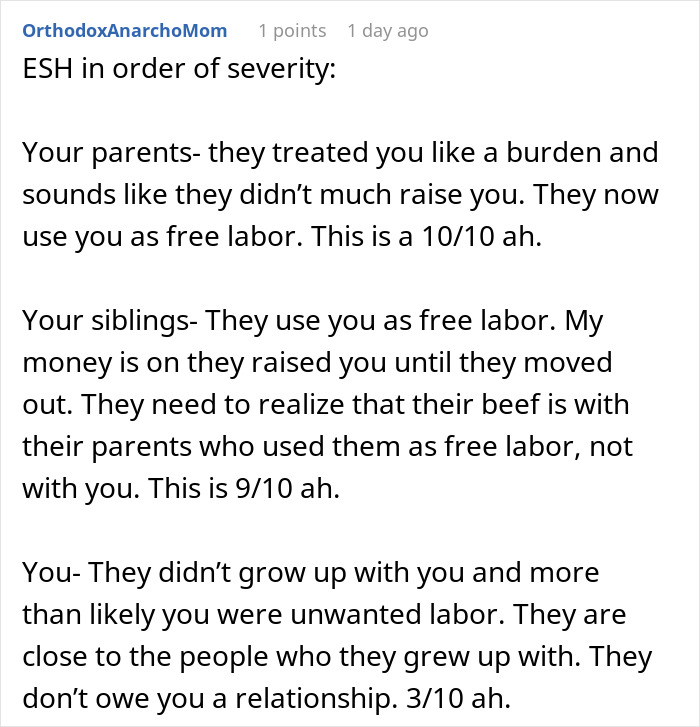Not all children are planned. In fact, nearly half of all pregnancies worldwide are unintended. The United Nations Population Fund has revealed that there are around 121 million unplanned pregnancies every year. Some result in births, some don’t. Some result in happy families. And others don’t.
One teen recently shared how he’s been reminded throughout his life that he was “an accident” that should not have happened. He was often excluded from family dinners and treated like a burden. As he got older, his siblings started using him as a free babysitter so the family could have fun without him.
Now that he’s 16, he’s decided “enough is enough”. But his decision to stand up for himself has not gone down well and he’s wondering if he’s in the wrong.
Having an unplanned child can come with its own set of challenges for the parents

Image credits: cottonbro studio / Pexels (not the actual photo)
But this teen is the one paying the price for his parents’ “oopsie” 16 years later
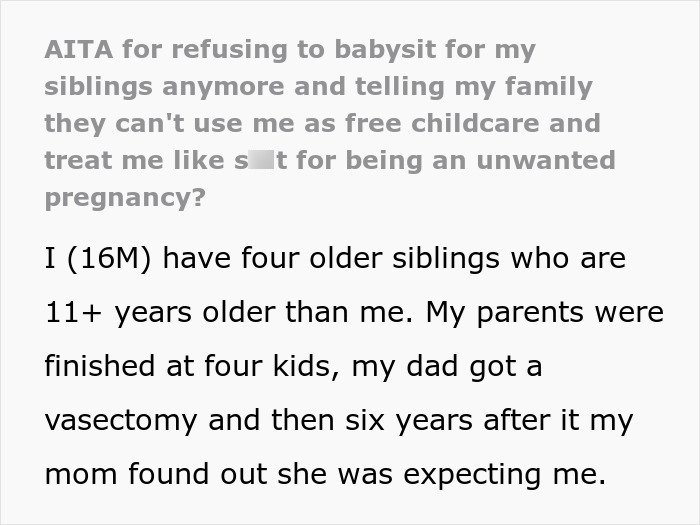
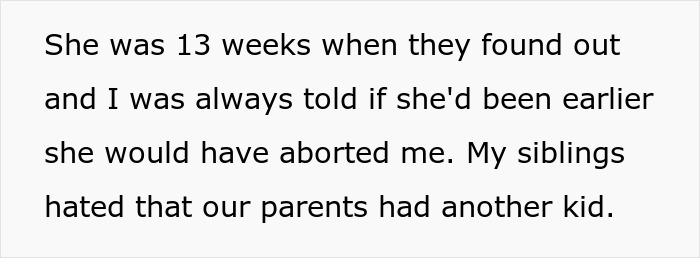
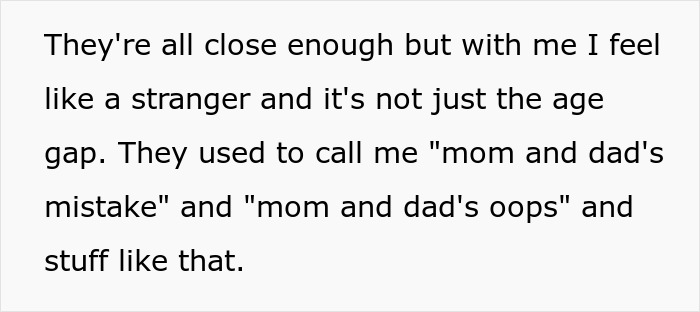


Image credits: micens / Envato Elements (not the actual photo)
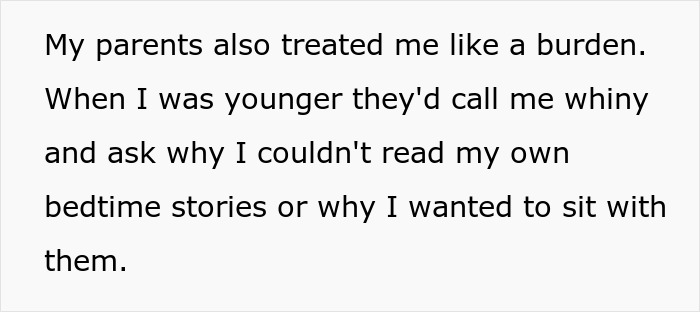

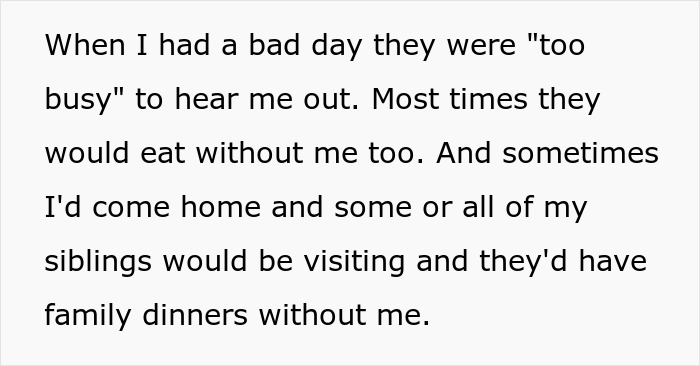


Image credits: freepik / Freepik (not the actual photo)

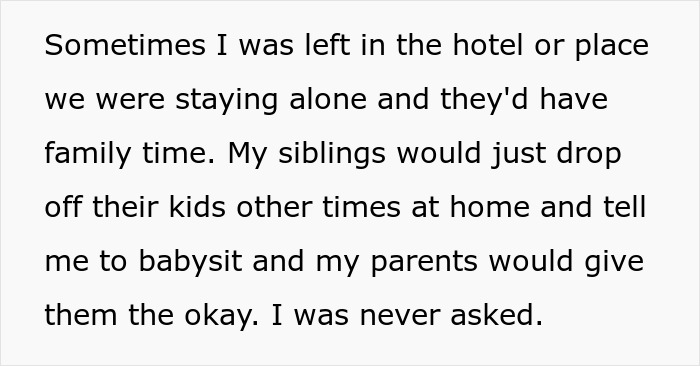
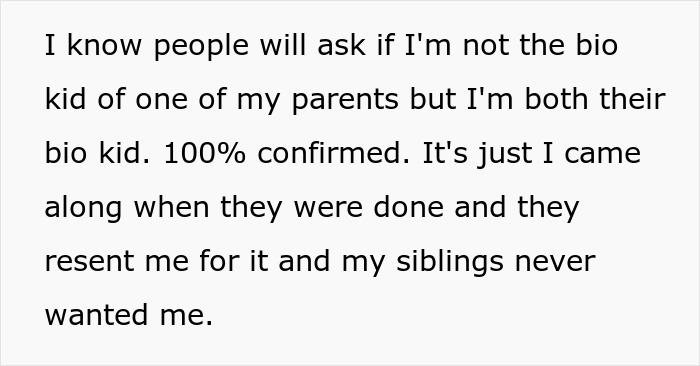
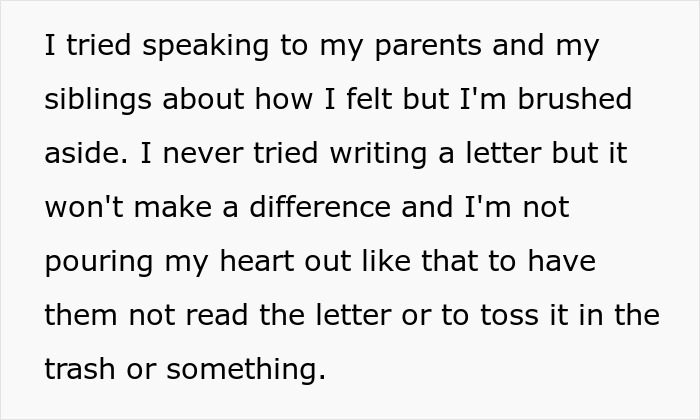

Image credits: primagefactory / Freepik (not the actual photo)
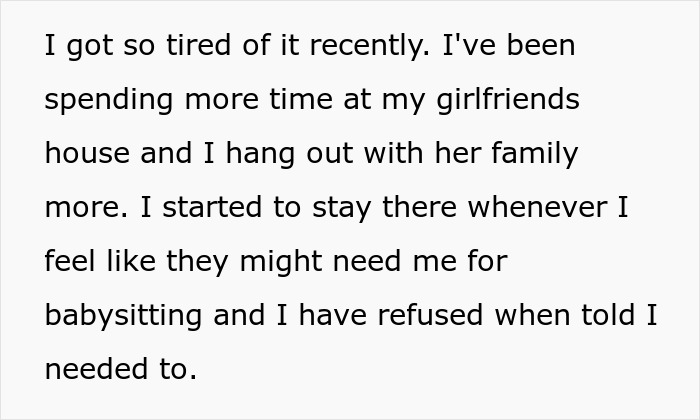

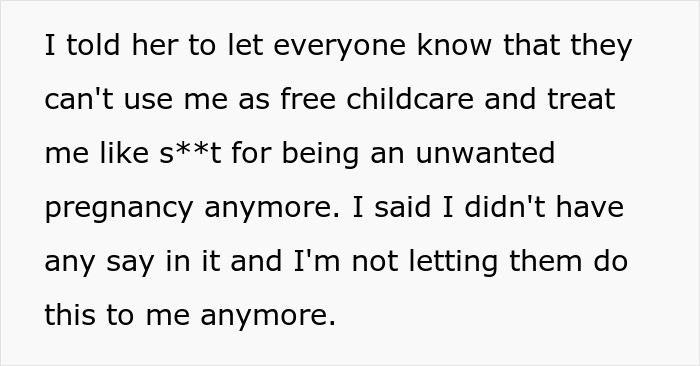

Image credits: SharpAddendum9864

Image credits: sunny / Freepik (not the actual photo)
Experts say being an “oops baby” can have an effect on a child’s development
Research shows that the average American woman will spend more than three-quarters of her reproductive life trying to avoid pregnancy. This is based on the fact that most women in the U.S. want to have two children. They’ll spend close to three years total pregnant, postpartum or attempting to become pregnant, and the rest making sure they don’t. But sometimes, they fail.
The Centers For Disease Control estimates that just over 40% of pregnancies in the States are unintended. And the Guttmacher Institute says the unintended pregnancy rate is significantly higher in America than in many other developed countries.
Not all women choose to follow through on unplanned pregnancies, and some of those who do face massive challenges. An unexpected baby can impact your finances, emotions, career, relationship, and life in general. But the child should never bear the burden of your choices.
Experts say children who are the result of an unplanned pregnancy can face the consequences if their parents don’t come to terms with the situation. “How a parent views their children is significant,” warned educational psychologist Patricia Britto.
“Every child or young person 25 and under needs at least one adult who thinks they are priceless and provides unconditional love. Parents’ attentiveness to their children’s emotions is essential when fostering their emotional development and well-being.”
Britto says telling children they weren’t planned can have a negative impact on the relationship with their parents all the way into adulthood. It can also affect their future relationships. “Children and young people who have been told that their birth status is unplanned can likely feel unwanted, which can be associated with attachment insecurity—anxiety and avoidance,” explained Britto.
The expert advises parents to think carefully about whether they want their child to know they were unintended. Should they choose to tell them, Britto says a nurturing approach is always best, as opposed to an abrupt comment.
Having an unplanned baby doesn’t always have to result in doom. Another expert, Jennie Lannette Bedsworth, believes how parents move forward after the pregnancy is what matters most.
The clinical social worker and behavioral therapist advises parents to work through their emotions, be they disappointment, sadness, anger. Once they’ve accepted the situation, they’ll have an easier time connecting emotionally with their child.
“With a solid network behind them, families dealing with an unplanned pregnancy can absolutely emerge happy and healthy,” said Bedsworth. “It’s not how a child begins that defines their future, but rather the care and nurturing they receive along the way.”
“Every child is a gift”: netizens were saddened by the situation and showered the teen with support
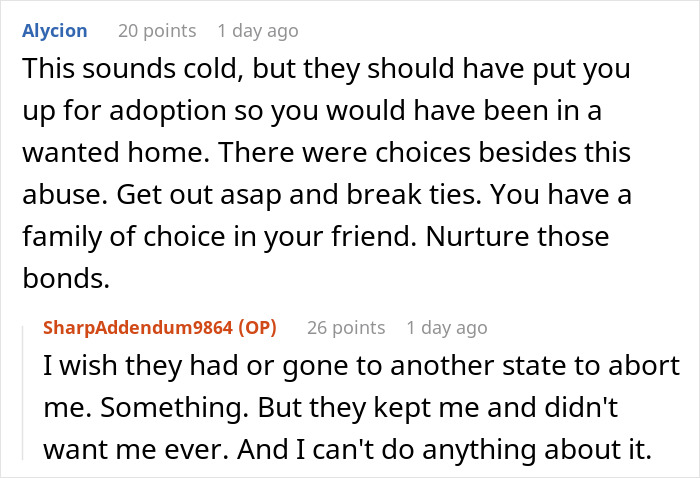
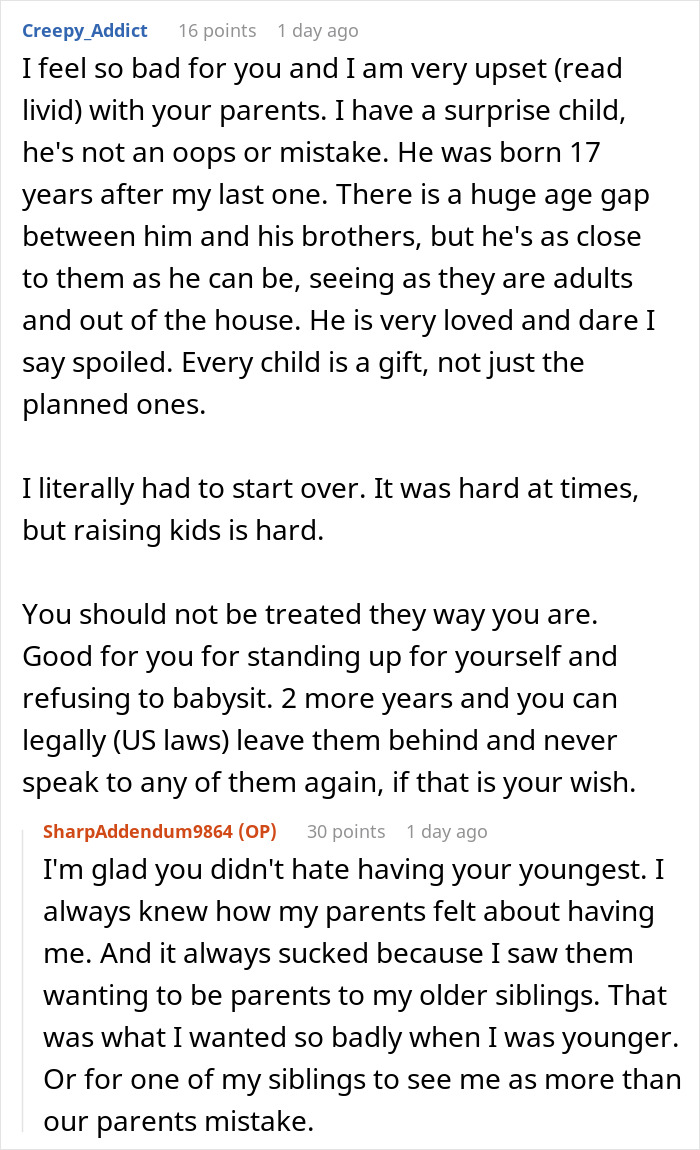
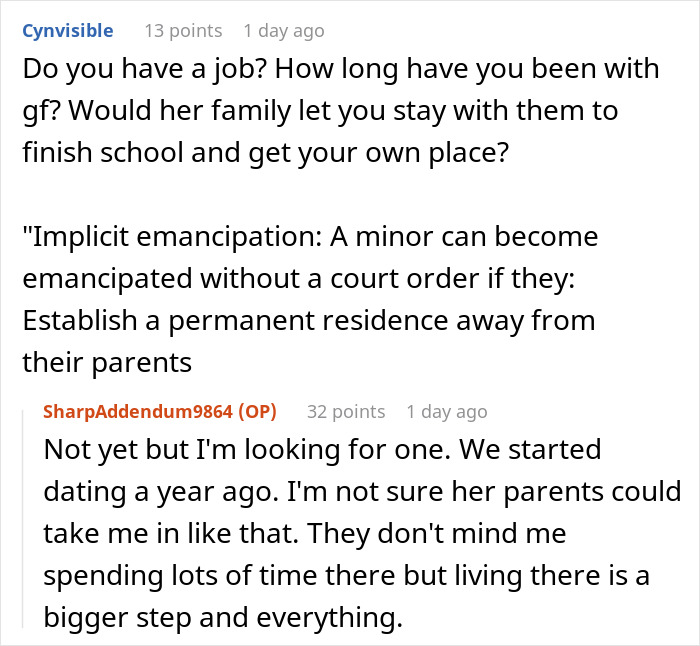
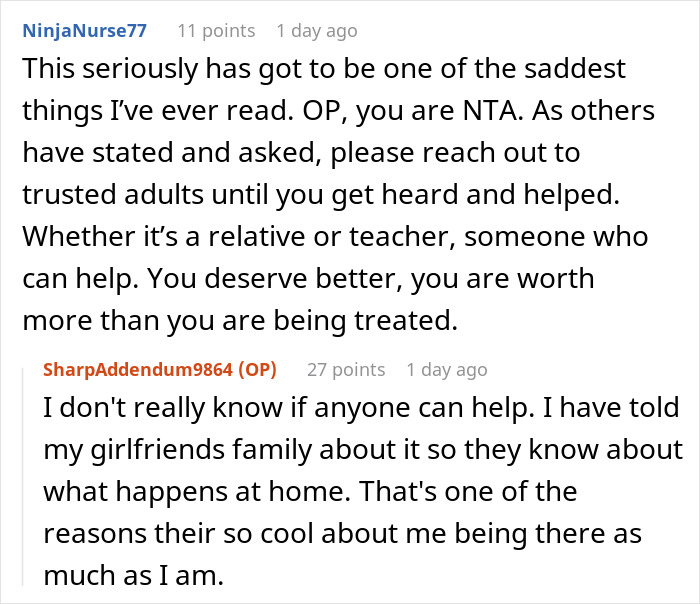
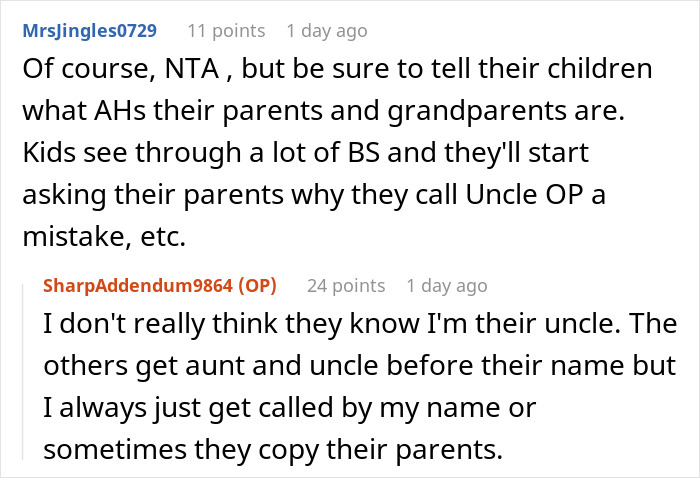
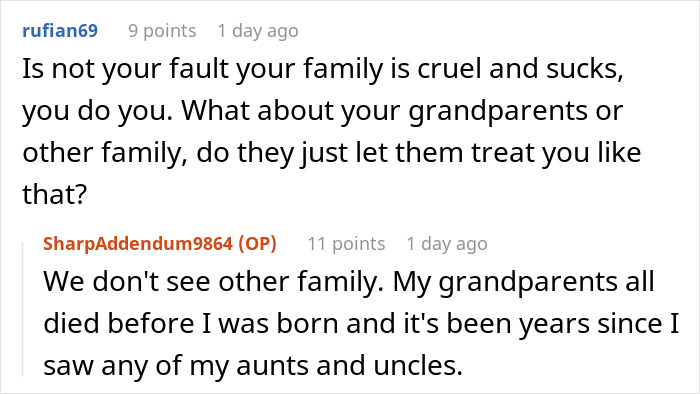
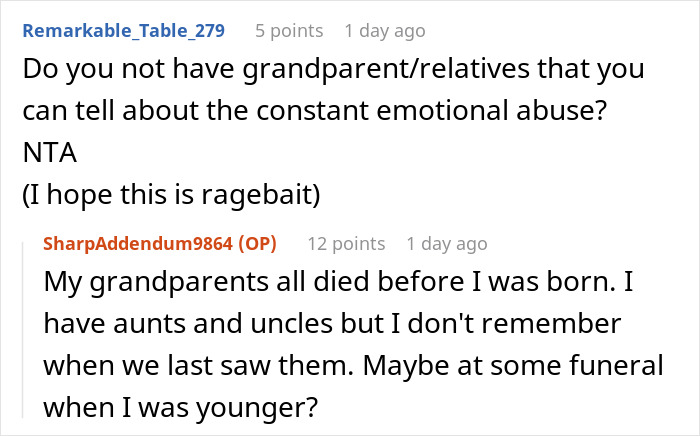

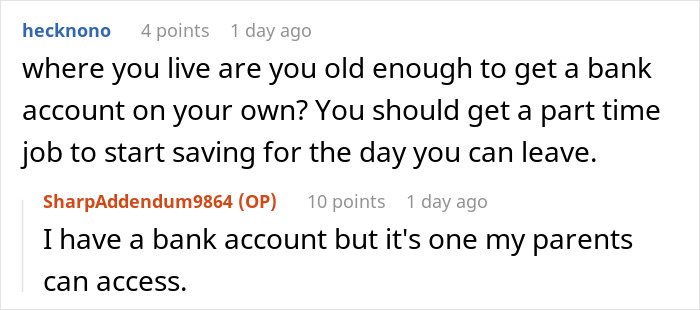




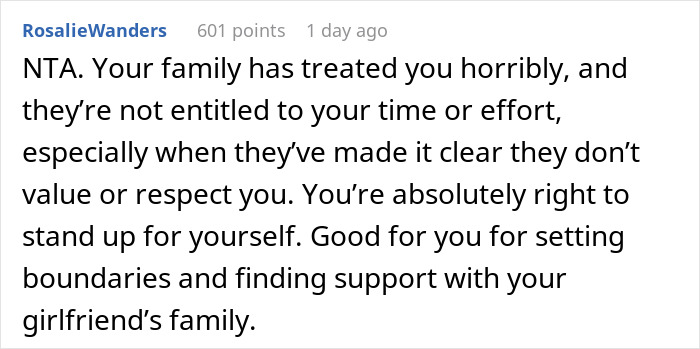
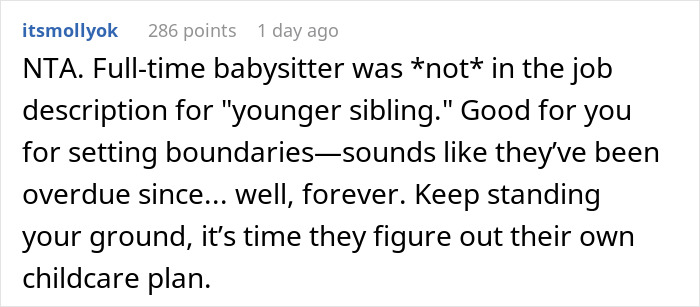



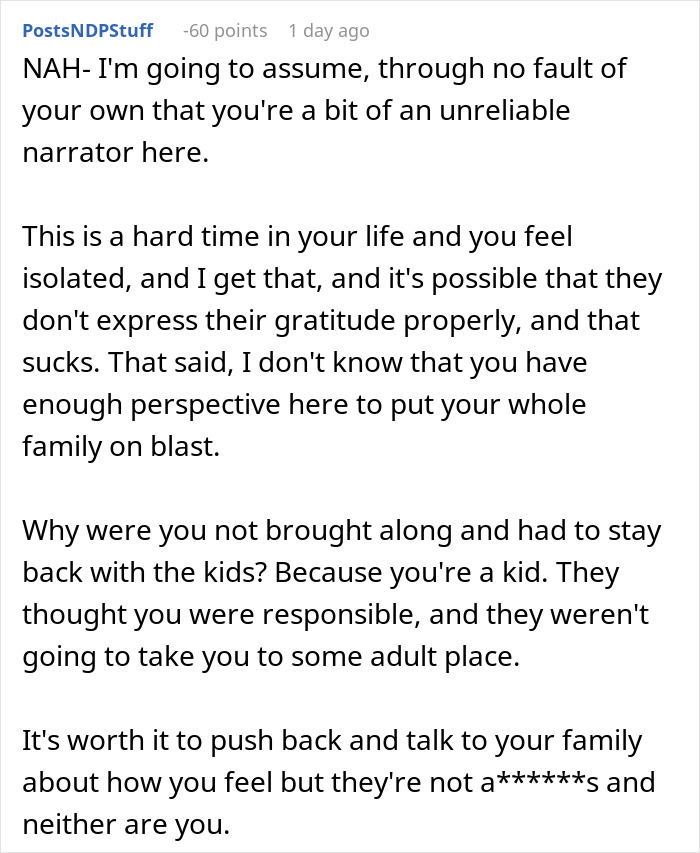
“The world isn’t always sunshine and rainbows”: not everyone was sympathetic
